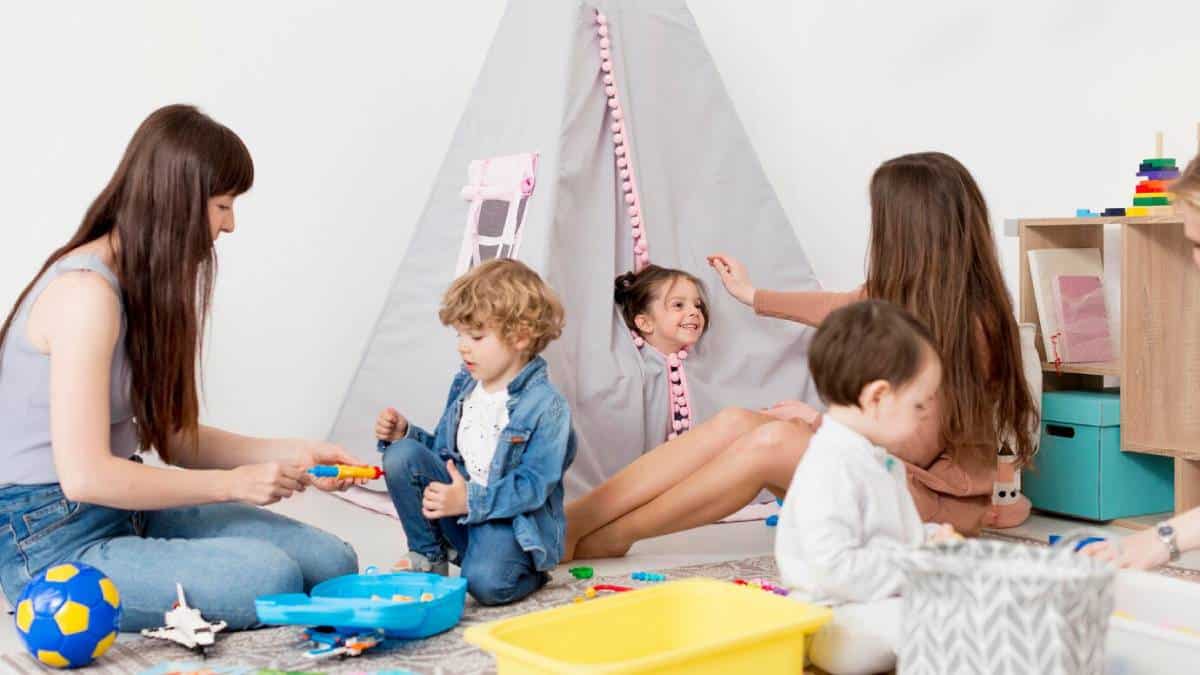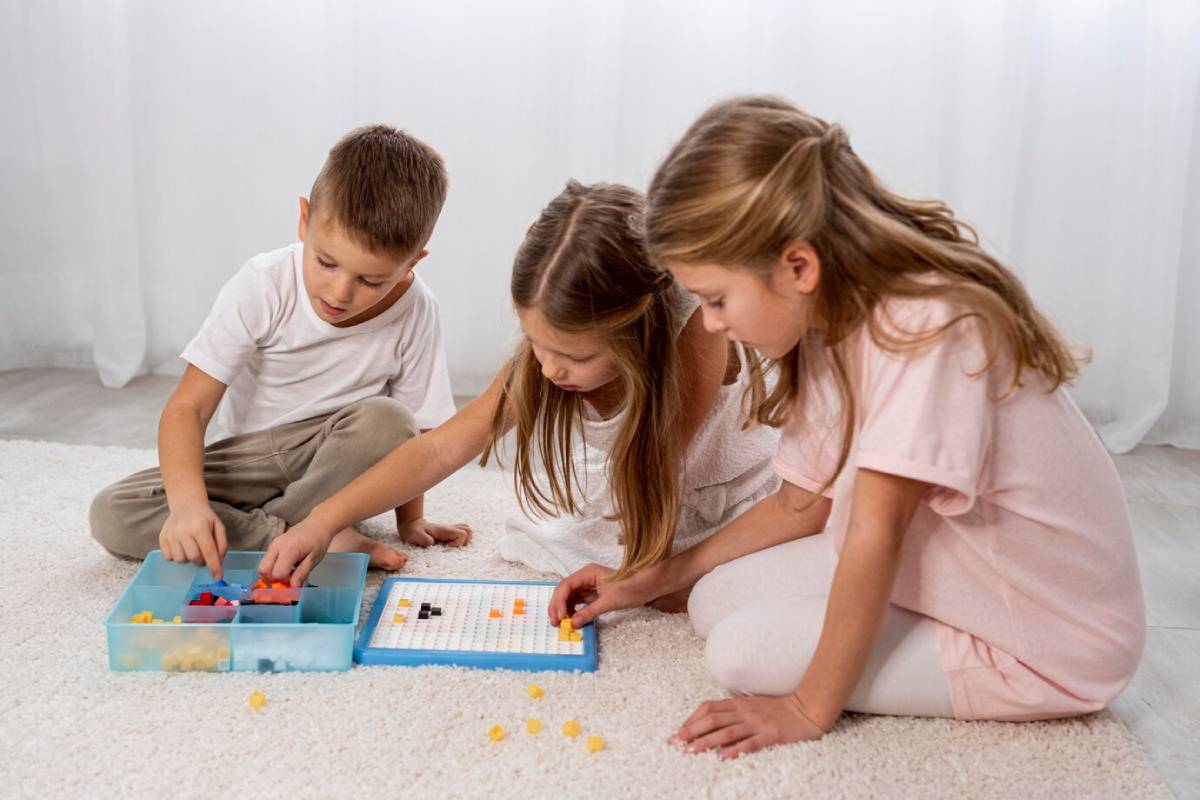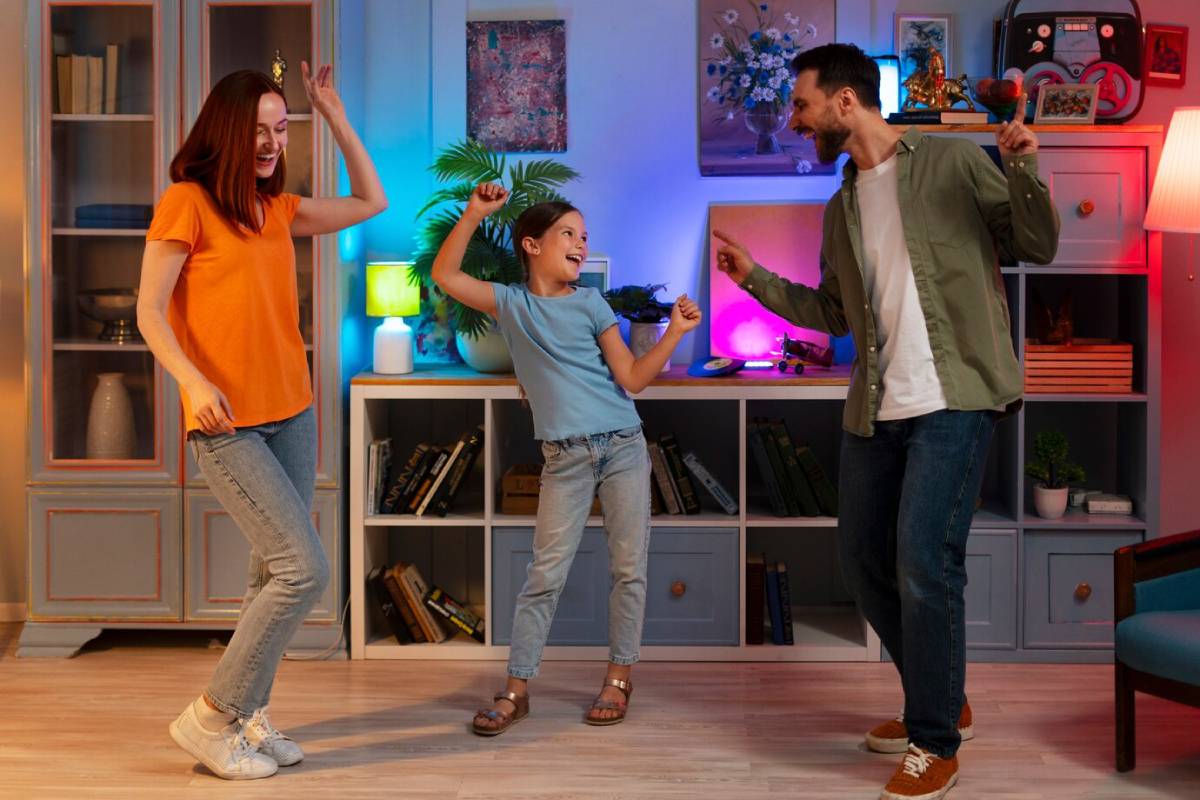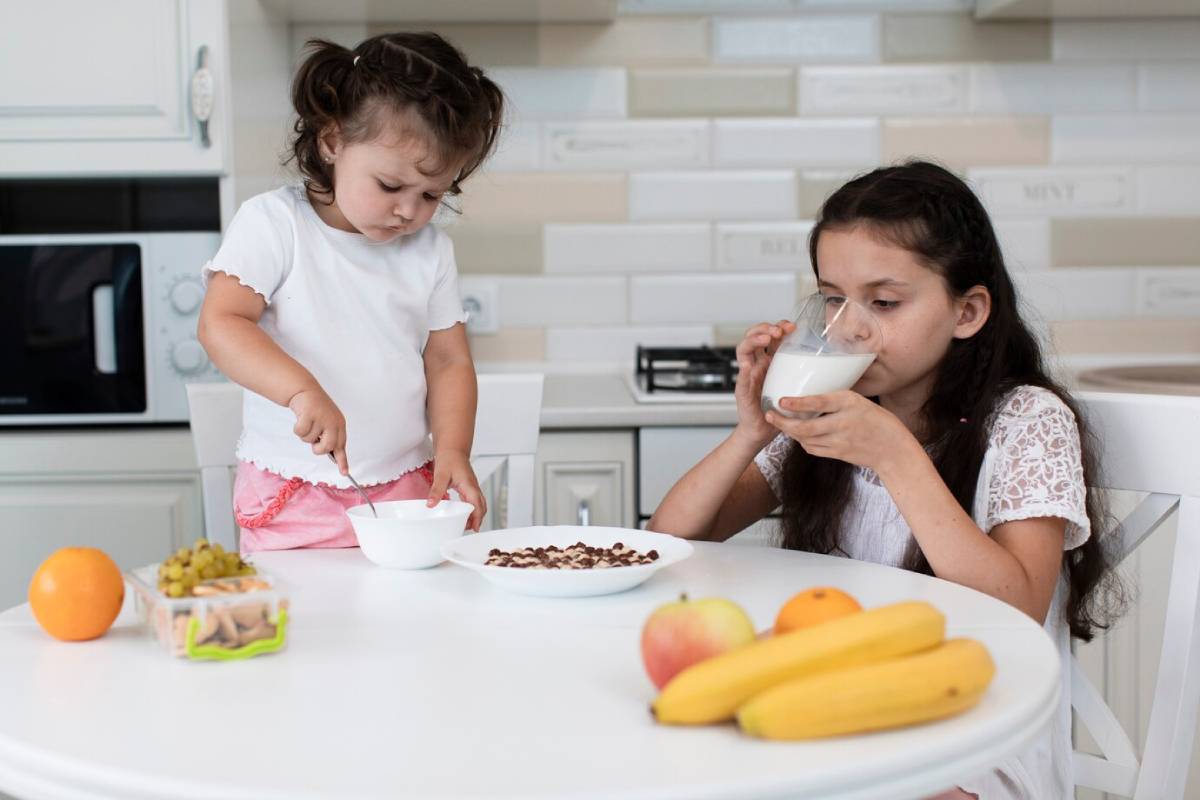
How to Organise a Safe and Fun Playdate for Toddlers
Playdates are not just opportunities for toddlers to romp. They are vital milestones in early childhood growth. Through enchanting, well-planned gatherings, little ones craft social skills, learn the nuances of sharing and explore thrilling new worlds. Yet for parents, the joy of toddler playdate planning can oscillate between exhilarating adventure and overwhelming chaos.
Whether you’re a playdate veteran or stepping into this realm for the first time, this guide will shine a light on creating a safe and delightful gathering for your pint-sized guests. From safety measures to captivating activity suggestions, we’ll tackle your burning queries about organising children’s playdates.
Pro Tip: Create a flexible playdate schedule. While toddlers thrive on routine, allowing for a mix of structured activities and free play ensures the gathering remains fun and fluid. If an activity fizzles out, have a backup plan ready to maintain their engagement without feeling rushed.
Quick Guide: How to Organise a Safe and Fun Playdate for Toddlers
- Choose a safe location—opt for toddler-friendly environments like your home, parks, or indoor play centres.
- Plan a 1–2 hour time limit—to avoid overstimulation or fatigue.
- Prepare a first aid kit—have emergency contacts and allergy information handy.
- Select simple, engaging activities—sensory bins, art, music, or outdoor play.
- Offer healthy, age-appropriate snacks—keep it simple and safe.
- Foster sharing—model sharing behaviour and manage expectations gently.
Important Tip: Safety is paramount. Always supervise toddlers closely, but try not to hover. Allow them to explore and build independence, but be ready to step in if a situation escalates. When planning outdoor playdates, check for potential hazards like uneven terrain or nearby water sources to ensure the environment remains secure.
Why Playdates Matter for Toddlers?
The Social and Emotional Benefits
Toddlers are navigating a crucial chapter in their social and emotional odyssey. Through playdates, they learn:
- The fine dance of sharing and taking turns
- Crafty communication skills and keen listening
- The delicate art of conflict resolution
- Empathy and emotional expression in colourful, imaginative ways
Playdates provide hands-on experiences essential for toddlers’ emotional and social flourishing.
Boosting Cognitive Development

Structured and free play fuel cognitive enlightenment. Engaging in activities like puzzles, sensory bins, or dramatic role-playing enhances toddlers’:
- Problem-solving prowess
- Language skills
- Motor coordination
This highlights the importance of careful toddler playdate planning for endless enjoyment and enrichment.
Preparing for the Playdate: The Essentials
Choose the Right Location
The spot should be safe, toddler-friendly, and manageable for adults. Ideal choices include:
- Your home (the ultimate haven)
- Nearby parks are perfect for adventure
- Indoor play centres with safe zones galore
If you’re organising children’s playdates outdoors, look for shaded spots and nearby restrooms.
Set a Time Limit
For toddler merriment, 1 to 2 hours is the magic number. Extended play may lead to exhaustion, overstimulation, or the dreaded mini-meltdown. Align the playdate with naps and meals to keep crankiness at bay.
Pro Tip: Mid-morning or early afternoon is the prime time for most toddlers.
Safety First: Smart Playdate Planning
Baby-Proof Your Play Space
Before tiny feet make contact, eliminate potential hazards:
- Secure heavy furniture to the walls
- Use safety gates for staircases
- Lock cabinets and drawers
- Cover electrical outlets
Creating a toddler-friendly haven is among the top safe playdate tips to avoid mishaps.
Have First Aid and Emergency Contacts Ready
Arm yourself with a basic first aid kit. Before the playdate, gather essential information from parents:
- Does your child have allergies?
- What are your emergency contact numbers?
- Are there special needs or fears (like dogs or loud noises)?
Preparation is crucial when organising children’s playdates with a troupe of toddlers.
Supervise Without Hovering
Grant kids the freedom to play independently, yet always keep them within sight. Put the phone down—remember, you’re not just the host; you’re also their safety anchor.
Planning Fun and Age-Appropriate Activities
The best activities for toddlers are simple, engaging, and rule-free.

Indoor Playdate Ideas
- Sensory bins: Fill with rice, pasta, or kinetic sand.
- Storytime: Revel in vibrant picture books.
- Music and dancing: Let them wiggle and groove.
- Building blocks: Duplos or wooden blocks are fantastic.
- Art and crafts: Dive into washable paint or stickers.
When crafting, choose non-toxic, washable materials—yet another of our prime safe playdate tips.
Outdoor Playdate Activities
- Water play: Splash tables or sprinklers (with supervision)
- Chalk art: Sidewalks and driveways welcome creativity.
- Nature scavenger hunt: Search for treasures like leaves or rocks.
- Obstacle course: Use cones, hula hoops, and jump ropes.
- Bubble play is always a hit for toddlers.
Outdoor escapades are a splendid way to expend energy and foster cooperative play.
Snacks, Hygiene, and Sharing

Offer Healthy and Safe Snacks
Opt for simple, finger-friendly foods such as:
- Banana slices
- Crackers
- Cheese cubes
- Applesauce pouches
Avoid common allergens like peanuts unless parents give the green light.
Hygiene Matters
Guide everyone to wash their hands before snacking. Keep hand sanitiser nearby, but remember, soap and water are the gold standard.
Safe playdate tip: Use colour-coded cups or labels to prevent mix-ups.
Navigating the Sharing Struggles
It’s entirely normal for toddlers to wrestle with sharing. Lend a helping hand by:
- Introducing toys that encourage sharing
- Stowing “special” toys before the playdate
- Modelling sharing language: “It’s Alex’s turn, yours is next!”
Managing Expectations and Toddler Behaviour
It Might Not Always Go Smoothly
Tantrums, tears, and toy snatching are part of toddler life. Stay calm, redirect your focus, and keep your heart light.
Know When to Intervene
Step in if:
- A child exhibits aggressive behaviour (hitting, biting)
- There’s a choking danger
- A child feels overwhelmed and needs comfort
Guide gently yet firmly. Redirect with a toy or introduce a fresh activity.
Involving Parents: Should They Stay or Go?
This often depends on toddlers’ age and comfort.
- First-time playdate? Suggest that the parent stay.
- Older toddlers or familiar faces? A drop-off might be fine.
Clearly state expectations in the invitation and maintain open communication if parents depart.
Clean-Up and Goodbyes
Wrap up the playdate with a gentle transition:
- Start clean-up ten minutes prior to wrap-up.
- Sing a cheerful clean-up song to keep spirits high.
- Present a small parting gift (like a sticker or snack).
This fosters positive associations with playdates, keeping toddlers eager for the next gathering.
Toddler Playdate Planning Checklist
- Choose a safe and suitable location
- Confirm attending guests and allergies
- Baby-proof the play area
- Plan 2–4 simple activities
- Prep healthy snacks
- Communicate clearly with parents
- Stay present and engaged
- Keep a first-aid kit handy
- End with a smile and a snack
This checklist ensures you orchestrate all facets of organising children’s playdates effortlessly and securely.
Frequently Asked Questions
What age is appropriate for toddler playdates?
Playdates can kick off as early as 12–18 months, but most toddlers flourish socially around age 2. Keep early visits brief and uncomplicated.
How many kids should I invite?
Start with one-on-one playdates to strike the right balance. As your toddler gains confidence, you can welcome 2–3 little friends at most.
What if the kids don’t play together?
Parallel play (side-by-side play without interaction) is completely normal. Interaction usually blossoms with age and familiarity.
What if there’s a conflict or tantrum?
Stay calm and collected. Use redirection or suggest a tranquil nook. Toddlers often require guidance to navigate overwhelming emotions, especially in unfamiliar territories.
Should I serve food during the playdate?
Absolutely, but keep it straightforward. Confirm dietary restrictions beforehand, ensuring snacks are age-appropriate and safe.
Making Playdates Memorable and Safe
Toddler playdate planning can indeed be a breeze. With a sprinkle of preparation and a focus on safety, you can create joy-filled experiences that both toddlers and their parents look forward to. From selecting age-appropriate activities to championing hygiene and attentive supervision, every detail transforms organising children’s playdates into a delightful adventure.
Remember, toddlers flourish through play, and each gathering becomes a stepping stone in their growth. Keep it light, flexible, and joyous, and you’ll host a memorable event that nurtures friendships and learning.
Whether it’s your first playdate or your fiftieth, a well-organised event brimming with smiles, laughter, and imagination is always worth every effort.